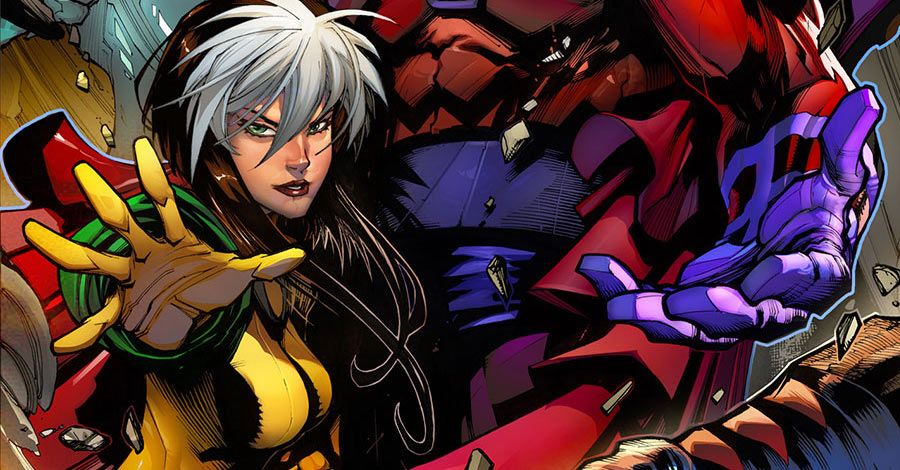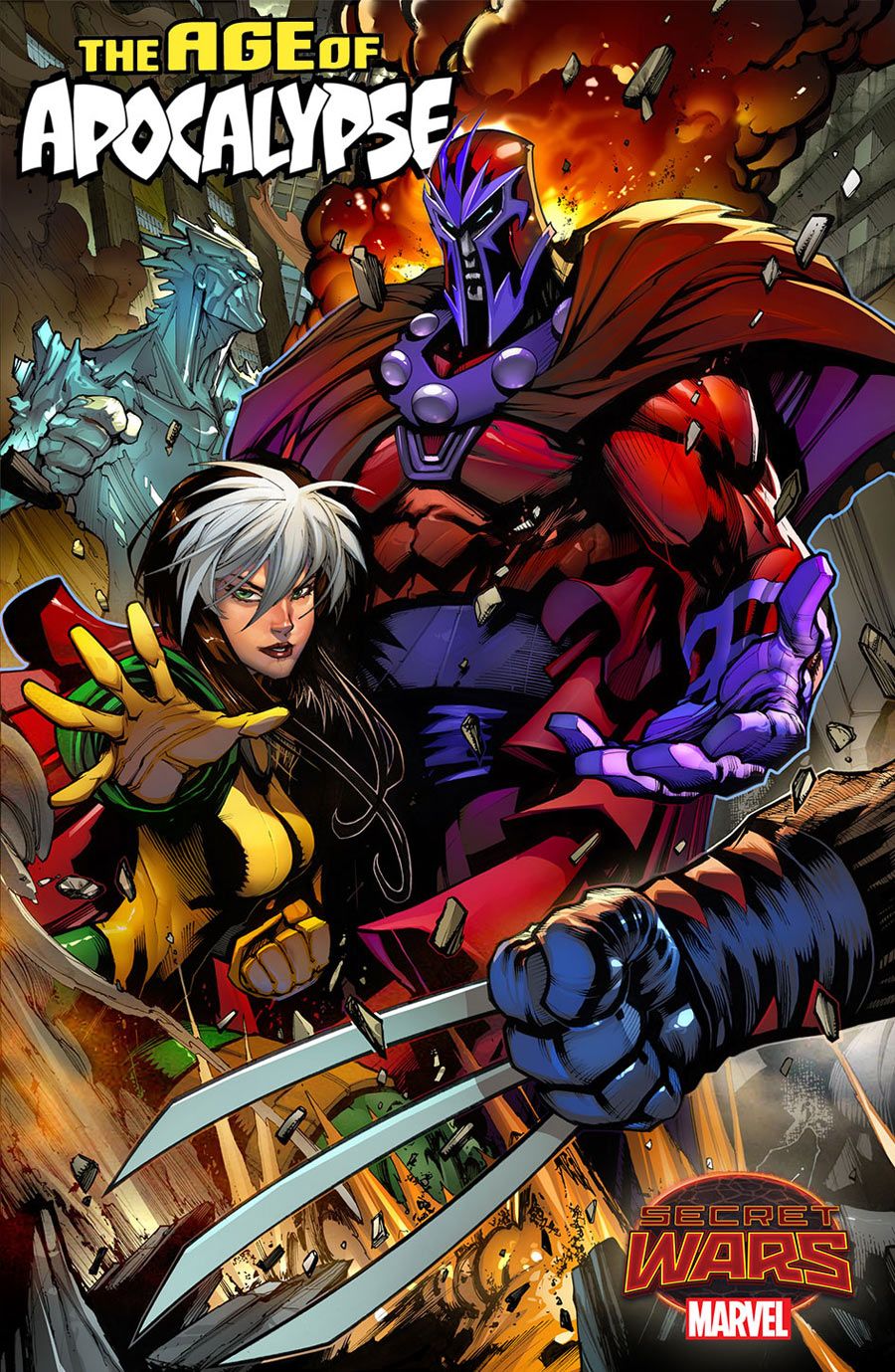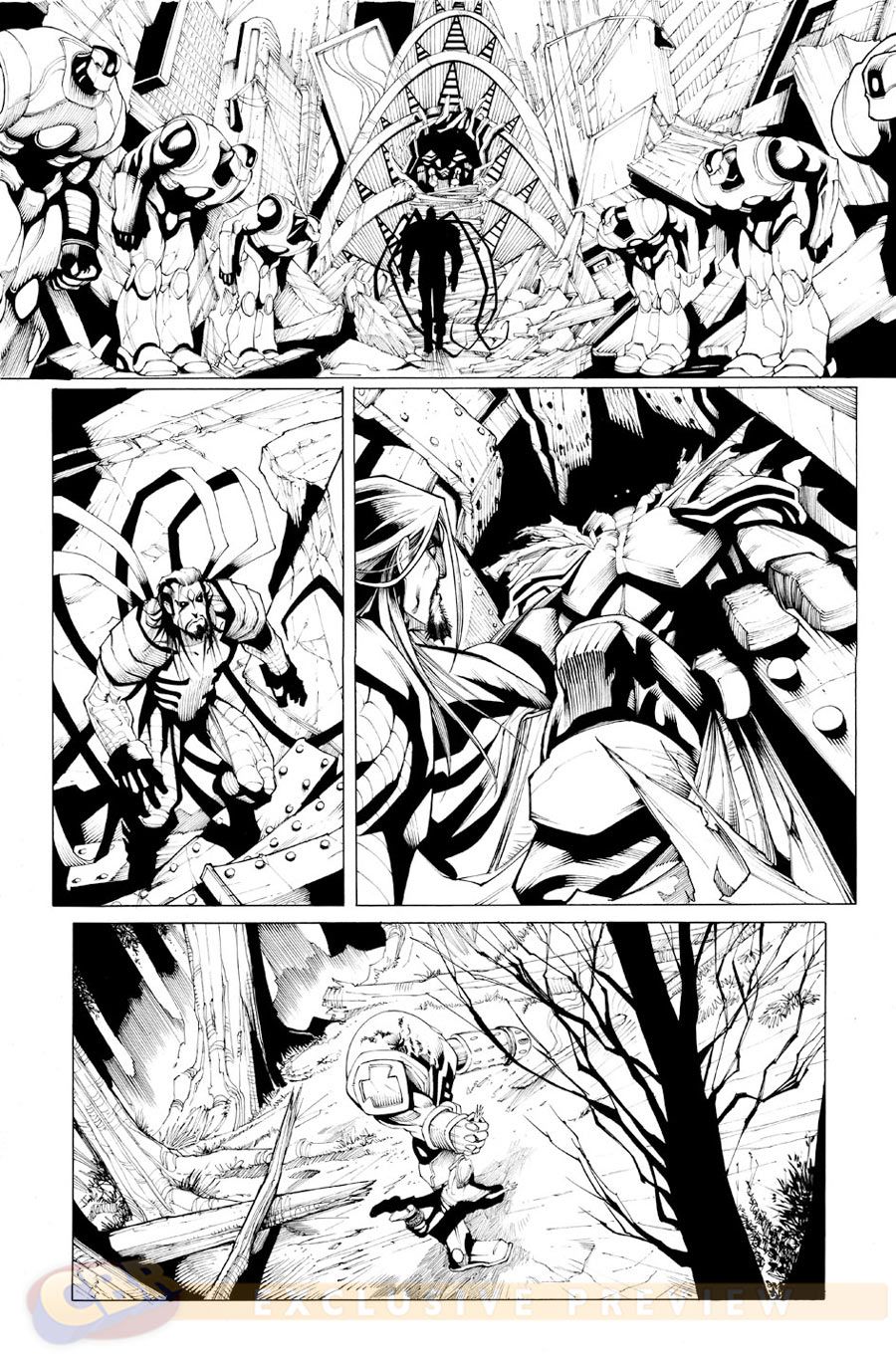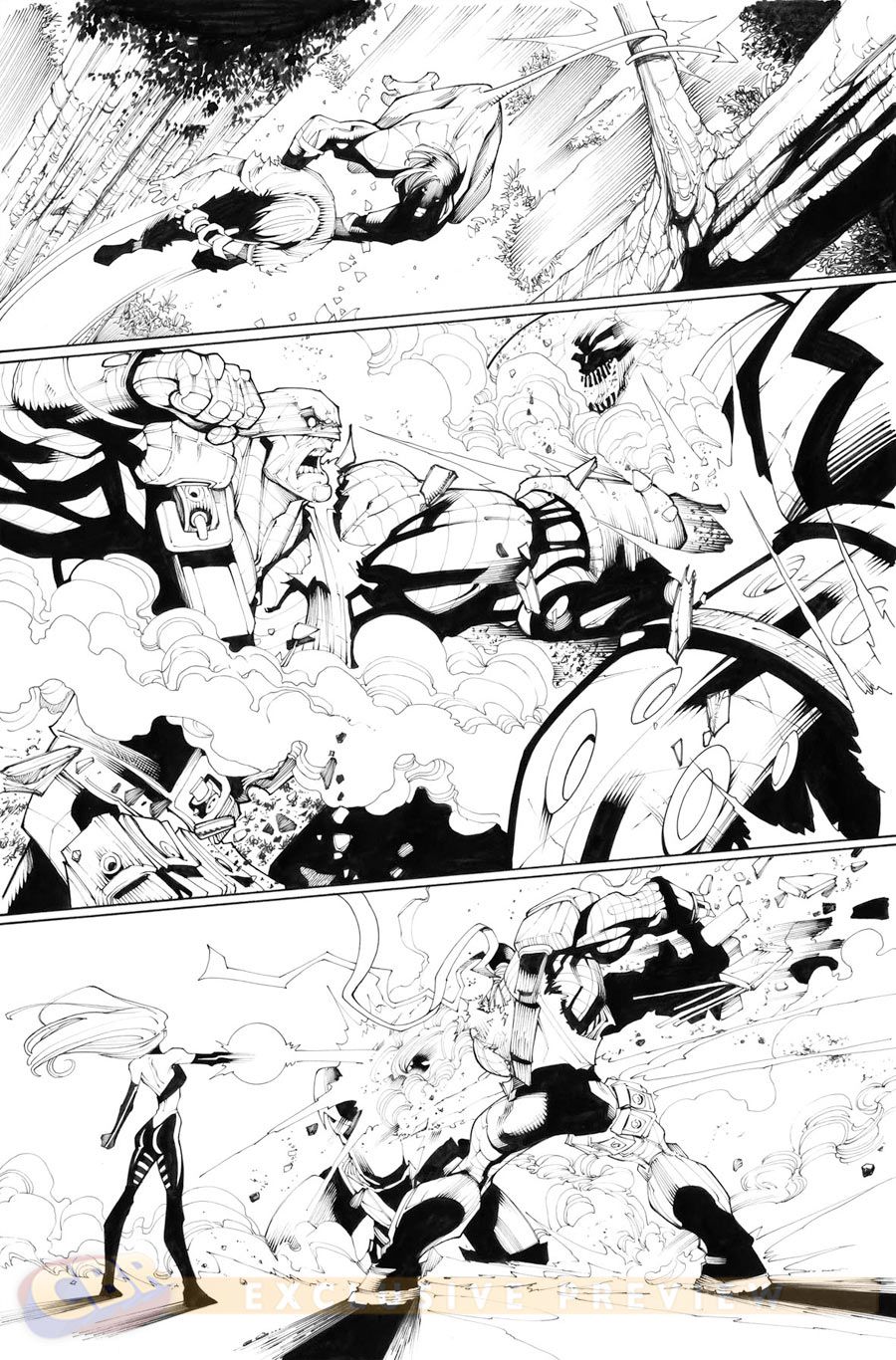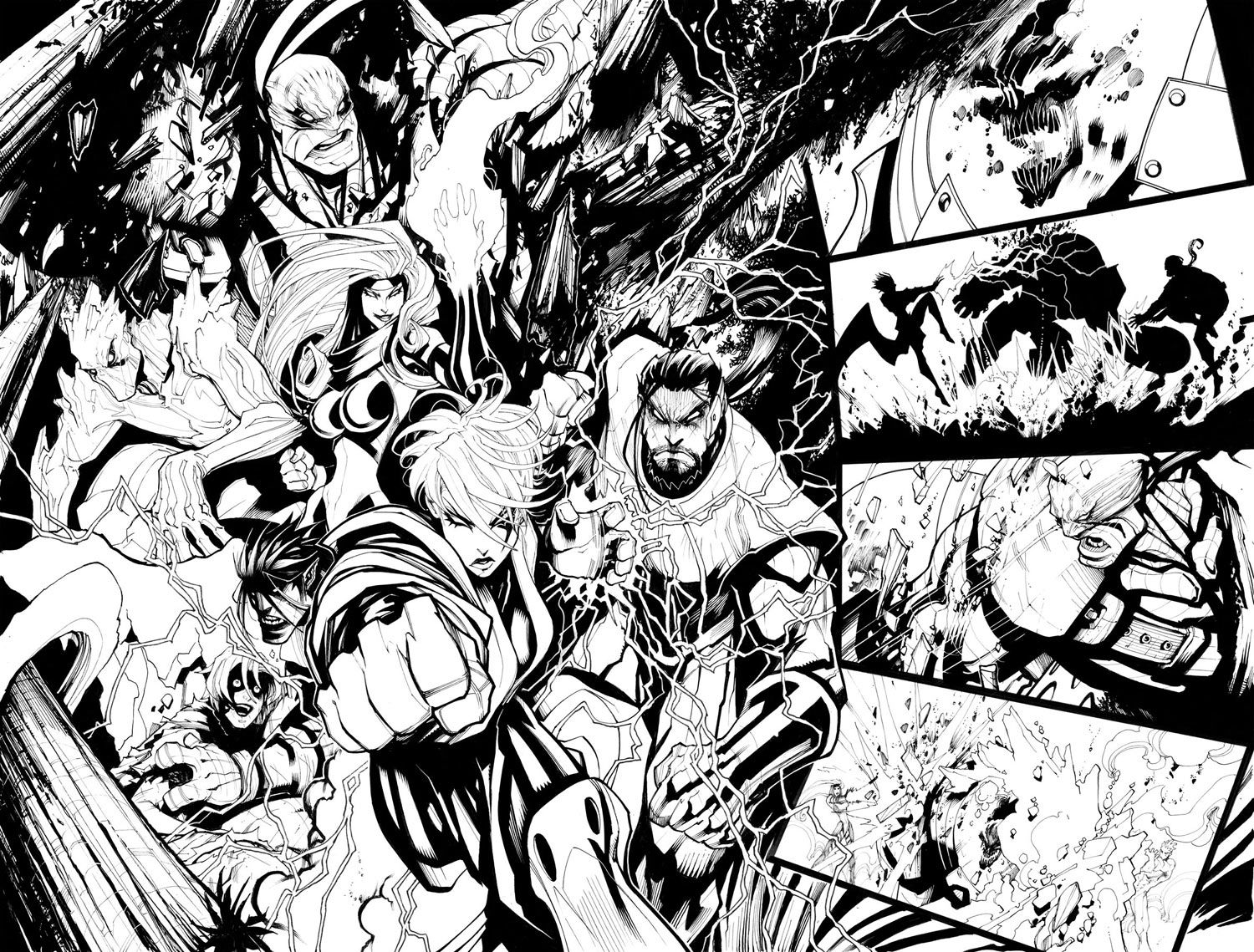The X-Men may devote a lot of their time to training and protecting mutants, but when it comes to defending Earth from larger threats, Marvel's mutant's efforts are just as important as teams like the Avengers. That was made especially clear in during the "Age of Apocalypse," where the murder of Charles Xavier altered reality and created an anti-human world ruled by the villain Apocalypse and his mutant elite. The only force capable of standing up to Apocalypse's empire was a ragtag band of mutant freedom fighters led by Magneto, their struggle documented in a series of titles that replaced the existing X-Men books of the time for several months.
The "Age of Apocalypse" storyline came to a close in 1996, but the detailed and expansive reality it presented remained a fan-favorite one. Thus, tt was revisited a number of times over the years, most recently in an "Age of Apocalypse" series that ended with the reality's destruction.
This summer, the Marvel Multiverse will be shattered by the "Secret Wars," its remnants reassembled into a patchwork planet known as Battleworld. Among those remnants is another version of the Age of Apocalypse reality, reimagined as a Battleworld domain by one of the writers of the original "AoA" storyline, Fabian Nicieza, and artist Gerardo Sandoval. We spoke with Nicieza about returning to Marvel for this multi-part story, revisiting and reimagining the "Age of Apocalypse," and the core struggle of his series, which finds the X-Men battling Apocalypse's forces while attempting to stop a human resistance army from committing mutant genocide.
CBR News: ou're re-imagining and revisiting the classic "Age of Apocalypse" story line, which is one of the most popular alternate superhero realities of all time. Why do you think that is?
Fabian Nicieza: I think it's because it was such an expansive story. Up to that point, I think the longest crossover we'd done was the 21-part "Galactic Storm" storyline in the Avengers family of titles. Wen you think about it, the original "Age of Apocalypse" was an unprecedented publishing event. It took some massive cojones to convince the powers that be to stop publishing the best-selling comics franchise in the industry for four months and replace it with something so risky.
And it was a risk. It might not seem like that now, but we had retailers and distributors complaining, we had internal higher-ups really putting pressure on us that if this didn't work, there would be "consequences." For anyone who supported us, I would tell them it was going to be incredibly cool, and for anyone who doubted us, I told them Bob Harras and Scott Lobdell were responsible for the whole thing!
On the actual creative front, before starting this new series, I reread the original for the first time in -- well, since it was originally published! I really respected the amount of depth and thought that was applied by so many different writers, artists and editors to build that story world in a meaningful way.
Everything and everyone in the series was recognizable, but all of it was smartly extrapolated through a grounded history of an, "It's what might have happened if...?" scenario.
What is it about that setting that makes writers and readers want to revisit it?
I think the notion of looking at all these characters through a prism is fun to do. The ability to cast dark shadows on what were once light characters, or put added burdens and pressures on a character like Magneto is fun for writers to explore and readers to chew on.
One of the reasons why you're re-imagining the Age of Apocalypse reality for this story is that the original reality was destroyed. That said, your setting still arises from a world where Professor X was slain, Apocalypse seizes power, and the Magneto-led X-Men become a sort of resistance unit battling Apocalypse.
Yes. Magneto's X-Men started as a means of training young mutants to use their powers and work in harmony with humans, as Charles Xavier would have wanted. But as Apocalypse rose in a more powerful fashion, their mission became closer to resistance fighters. Eventually, as En Sabah Nur consolidated power and control over his domain on Battleworld, the X-Men became branded as terrorists against the ruling mutant state.
Are there any other major similarities and differences between this world and the original AoA world?
A lot of both, actually. I won't give too many of the differences away, since that's part of the fun of reading the new series, but one big, huge difference is that since the "Secret Wars" "AoA" is a self-contained series, it is far less sprawling in nature. The Battleworld status quo helps structure the new series in a more tightly focused manner. Less characters, less locations and a little more of a direct ticking time bomb element to the storyline.
What's the status quo for Apocalypse's mutant elite and the X-Men when your story begins?
En Sabah Nur has taken total control over his domain. Mutants are supreme, humans are chattel. The X-Men are down to their last dregs. Their last hope for stopping Apocalypse is to prove that his ultimate, insane plan is to challenge the God of Battleworld. Meanwhile, the human population is so desperate that they believe their sole hope of survival is to commit genocide against all mutants.
That's a pretty fun status quo to start the story with, isn't it?
How large is the cast of "Age of Apocalypse?" Who are some of your perspective characters, and what do you find so interesting about writing them against this backdrop?
The "Secret Wars" "AoA" is a large cast, but not as expansive as the original "AoA." There are not a lot of X-Men left after the opening scene of the first issue, but by the same token, there is now an opening slot for a new Horseman of the Apocalypse.
Magneto leads the X-Men, which include Rogue, Wolverine, Blink and some others. The Horsemen include Essex (Mr. Sinister), who overseas both the biolabs of Dr. Henry McCoy, and the Elite Mutant Force police led by Scott Summers.
I don't want to give all the characters away, but the main narrative POV for the story comes from an unexpected source, which is Doug Ramsey, formerly Cypher of the New Mutants. His power makes him a vital lynchpin to the story, while his perspective and humanity make him a perfect foil to comment on the desperation, barbarity and lack of hope all around him.
Cypher is a character readers and some writers tend to view differently. Some see his mutant power of being able to communicate with anything as ineffectual when it comes to super heroics, while others view it as extremely formidable. Sounds like you fall in the latter camp.
For me, it's playing with the scope of Doug's powers again. Being able to interpret and communicate in all languages is fine if you're on a space adventure, but if everyone is speaking English, it doesn't help out that much.
On the other hand, let's say we were to tweak the scope of his powers a bit and extrapolate that Doug can not only understand language, but he can discern the true meaning behind the words people say. He can find the hidden truths behind the lies people spout or get to the heart of someone's intentions during the course of a conversation.
That power is much more useful -- and important -- in a world where humans may be hiding a genocidal weapon, or your country's abject ruler plans to risk the lives of everyone in his country by challenging an omnipotent being in a battle to prove who is fittest.
While the set up for "Age of Apocalypse" ensures plenty of action and some emotional drama, fans of your work know you're also really good with humor. So how would you describe the tone of this series? Is there room for some comedic moments?
The tone is breakneck adventure, political intrigue and ugly, nasty action, but there's always room for a spoonful of humor in my work! Whether it's broader like Deadpool, or sad, black humor like in "AoA." The original had moments of levity, as does this new series.
There has to be a cynical edge running through characters who have been fighting for so long. The arrogance of the winners played out against the desperation of the losers can always draw out character humor.
Helping you set the tone of "Age of Apocalypse" is recent "Guardians 3000" artist Gerardo Sandoval, whose wrk lends itself well to dynamic action and character designs. Which aspects of Gerardo's art style do you enjoy most?
I honestly wasn't as familiar with his work before editor Mike Marts told me Gerardo would be drawing the series. I checked out some of his earlier material, plus his initial character sketches for this series, and I was floored by the sheer power of his work. Gerardo channels a Joe Madureira vibe, which is great as a touchstone for this series, but it's also very much his own approach, injected with a jet-black load of testosterone and a nastier tone.
It's been a while since your last work for Marvel. What's it like to return to the company and the world of the X-Men, which you spent a large part of your career exploring?
I wrote a couple of short stories for the "X-Men Gold" and the Deadpool Wedding issues a year ago, but this is the first full writing assignment I've done since "Cable & Deadpool."
As for how it feels? Great. Fun. Like I belong. Sometimes, editors have to be reminded that the old, ratty hoody buried in their closet is the most comfortable thing to wear. Even if it's not the most attractive of looks to wear in public, it does keep them warm and snug. [Smiles]

